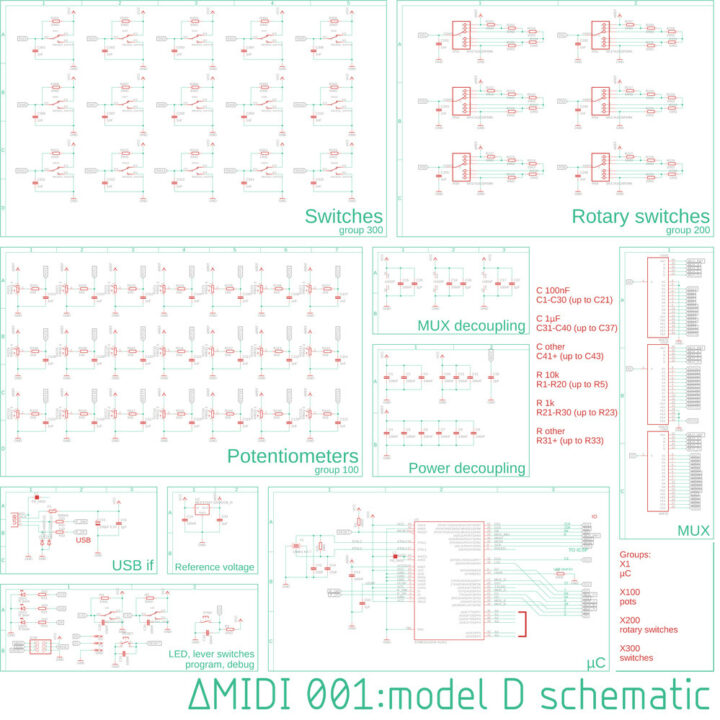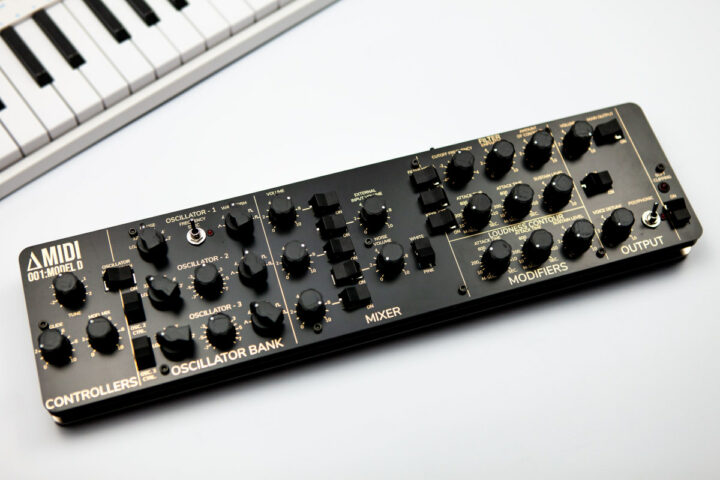ΔMIDI 001:model D is an Arduino-based MIDI controller inspired by the Minimoog Model D synthesizer first introduced in the early 1970’s, but not in production anymore.
The MIDI controller is compatible with VST (Virtual Studio Technology) plugins designed for the Minimoog synthesizer, DAWs (Digital Audio Workstation), and as an open-source, can be directly modified or tweaked by its user.
ΔMIDI 001:model D key features and specifications:
- MCU – Arduino-compatible ATMega microcontroller
- Controls
- 21x analog potentiometers
- 6x 6-stage knobs
- 15x toggle switches
- 2x lever switches
- 3x LED indicators
- 44x physical controls in total.
- Sync button for instant settings transfer.
- Map button for changing MIDI mapping on the fly.
- Class-compliant MIDI-USB protocol implementation
- Eurorack-compatible design
- Dimensions – 425 x 110 x 48 mm
- Weight – 1100 grams
- Materials – Three layers of fiberglass reinforced laminate with an additional layer of sheet aluminum. All CNC-machined.

The 001:model D MIDI controller has been tested with Arturia Mini V, Native Instruments Monark, UAD Minimoog, and GForce MINIMONSTA on Windows, macOS, iPad with USB-C adapter, and Linux machines including the Raspberry Pi SBC. Eventually, the MIDI controller will be open-source with Arduino firmware, source code, mechanical design, schematics, BOM, and PCB design released publicly, but only after the crowdfunding campaign is complete, and right now we only have the low-resolution schematic above.
ΔMIDI has launched the audio device on Kickstarter with a 16,000 Euros funding target, that’s about $16,000 thanks to the Dollar/Euro parity… An early-bird pledge of $225 with 20% VAT included (it ships from Poland) should get you a fully assembled 001:model D delivered in August 2022, just right after the crowdfunding campaign is over.

Jean-Luc started CNX Software in 2010 as a part-time endeavor, before quitting his job as a software engineering manager, and starting to write daily news, and reviews full time later in 2011.
Support CNX Software! Donate via cryptocurrencies, become a Patron on Patreon, or purchase goods on Amazon or Aliexpress





